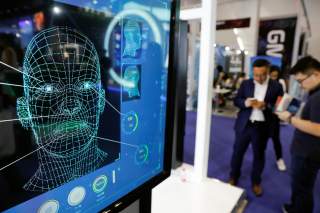Facial Recognition Meets the Fourth Amendment Test
There may be no way to address the overarching fears all new surveillance technologies raise; however, major concerns can be addressed without slowing the use of facial recognition.
The rate of crimes that are unresolved is very high: according to FBI data, only 45.6 percent of violent crimes and 17.6 percent of other crimes were solved in 2017. Given the high rates of unsolved crime, the threat of terrorism, the waves of human trafficking, and that FR uses information voluntarily shared by the public (which is much less invasive than DNA tests or even the routine screening conducted in airports), Congress should ensure that FR is used properly, but not ban it nor slow it down.
Individual rights advocates should note that FR not only enhances law enforcement but also greatly enhances individual liberty and dignity. By making it possible to quickly identify a guilty person from among a group of suspects, or at least speedily remove suspicion from most people, FR greatly reduces the humiliation and costs entailed in being a suspect in a police investigation. Imagine an investigation of a rape in a hospital. Anyone with access to the patient in question would come under suspicion. They may be subject to questioning, it will become publicly known that they are suspects, and, if the criminal is not found, they may be under prolonged surveillance. However, FR could quickly clear most of the suspects, if the images on security cameras could be used.
In short, FR can make major contributions to national defense and public safety while its intrusion is lower than that of many other law enforcement procedures, which the courts have approved under the Fourth Amendment. Moreover, by rapidly clearing people who are suspects, it helps protect individual rights. The use of FR should be monitored to ensure that it is not employed in ways that are racially biased, or for illicit purposes, but there seems to be no reason to slow down its introduction, let alone ban it.
Amitai Etzioni is a University Professor and professor of international affairs at The George Washington University. His next book, Reclaiming Patriotism, was published by the University of Virginia Press on September 10.
Image: Reuters

